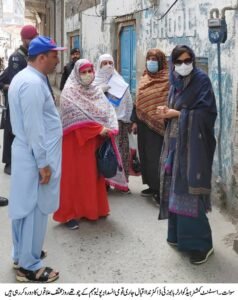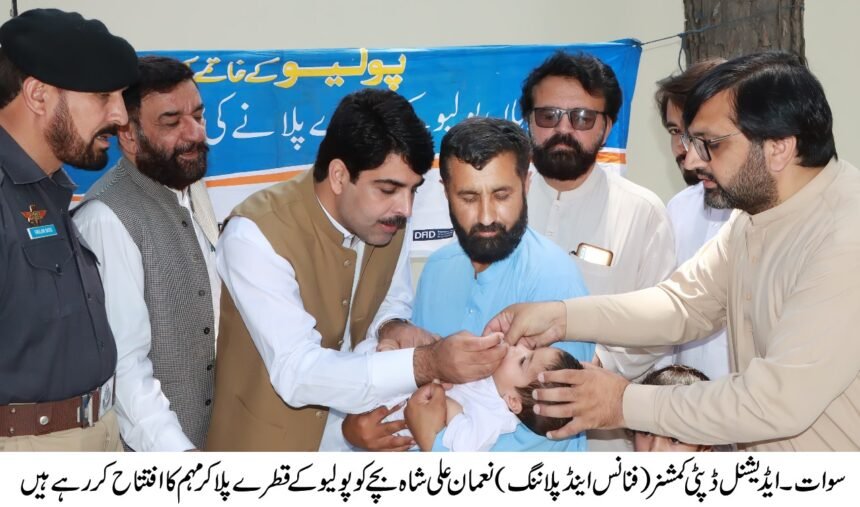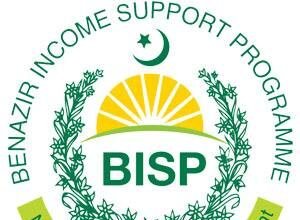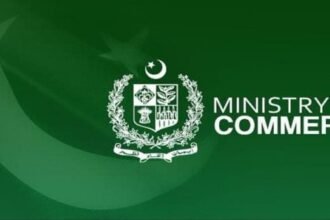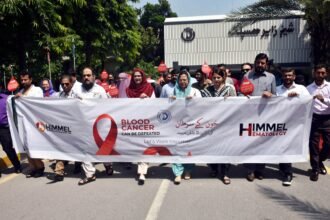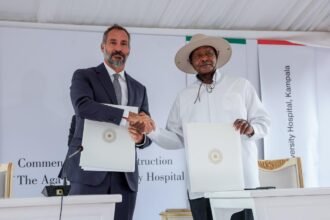In a small village in District Swat, six-year-old Ali Khan (a pseudonym) once played happily without a care in the world. But one day, the polio virus completely changed the course of his life. The virus attacked his spinal cord, leaving his arms and legs paralyzed. This tragic reality reminds us just how dangerous polio is, and how urgently we need serious and collective efforts to prevent it.
Polio is an extremely contagious disease that mainly affects children under five years of age. The virus damages the spinal cord, causing paralysis in limbs. Unfortunately, there is no cure for polio — only protection through vaccination can prevent it. In a few countries including Pakistan, polio remains a serious challenge due to widespread ignorance, misconceptions, and conspiracy theories against the vaccine.
Data from 2024 and 2025 clearly show that polio is far from eradicated. In 2024, 74 cases were reported nationwide, with significant numbers from Balochistan, Khyber Pakhtunkhwa, and Sindh. Remote areas in these provinces faced additional difficulties such as security concerns, limited vaccine availability, and parental refusal to vaccinate their children, complicating the situation further.
So far in 2025, 10 cases have been reported, mostly from Khyber Pakhtunkhwa and Sindh. Major obstacles to eradicating polio include mistrust, disruptions in vaccine supply, and attacks on polio workers. These challenges keep Pakistan among the few countries where this deadly disease still persists.
Recently, a successful five-day polio eradication campaign was completed in the Malakand Division of Khyber Pakhtunkhwa, where over 800,000 children under five received the polio vaccine drops. Under the leadership of Commissioner Abid Wazir, Deputy Commissioners of Swat, Buner, and Shangla — Shehzad Mehmood, Kashif Qayyum, and Muhammad Fawad — not only planned but personally supervised and motivated teams in the field, significantly boosting the campaign’s effectiveness.
Similarly, the campaign was successfully conducted in Upper and Lower Dir, Upper and Lower Chitral, Malakand, and Bajaur, where millions of children were vaccinated against polio.
The greatest success of the campaign lies in the awareness and cooperation of parents. Control rooms established at the district level ensured timely and safe delivery of vaccines. If any child was missed during the campaign, teams revisited homes to ensure no child was left unvaccinated. Alongside parental support, religious scholars, local elders, and media played vital roles in raising public awareness, driving the campaign toward success.
Previously, polio campaigns were considered solely the responsibility of the health department. However, it is now clear that resolving national issues requires collective efforts. District administrations did not just supervise but actively participated alongside teams. Deputy Commissioners visited remote areas, assessed team performance, and took part in vaccinating children, further raising public awareness and contributing to the campaign’s success.
The Khyber Pakhtunkhwa government has treated the polio campaign not as a routine exercise but as a mission for public welfare. Polio workers were provided full security and vaccine supply was ensured without interruption. Different departments collaborated with an integrated strategy, while media campaigns, participation of religious leaders, and involvement of local representatives helped raise parental awareness — a milestone for a healthy and polio-free generation.
According to Dr. Liaqat Ali, a health official from District Swat, no polio cases have been reported in Swat since 2014. Unfortunately, in 2019, two cases were reported — one in Bajaur and another in Shangla — but since then, no new cases have emerged. Dr. Ali expressed hope that with the support of parents and religious scholars, complete eradication of this crippling virus is achievable.
The key to the campaign’s success lies in parental awareness and cooperation. Sadly, some parents refuse vaccination due to rumors and misinformation, putting not only their own children but the entire community at risk. Health experts strongly urge parents to understand the importance of the polio vaccine and ensure their children receive every dose, so Pakistan can be declared polio-free once and for all.
Eradicating polio is no longer just a dream — it is a journey steadily moving toward reality. If all institutions, parents, religious leaders, media, and district administrations continue working together, Pakistan can soon become a polio-free country. This national mission requires collective spirit and a coordinated strategy — because when the state and the people unite, no challenge is insurmountable.
Let us all join hands to secure a healthy future for our children and make this great mission of a polio-free Pakistan a success.
